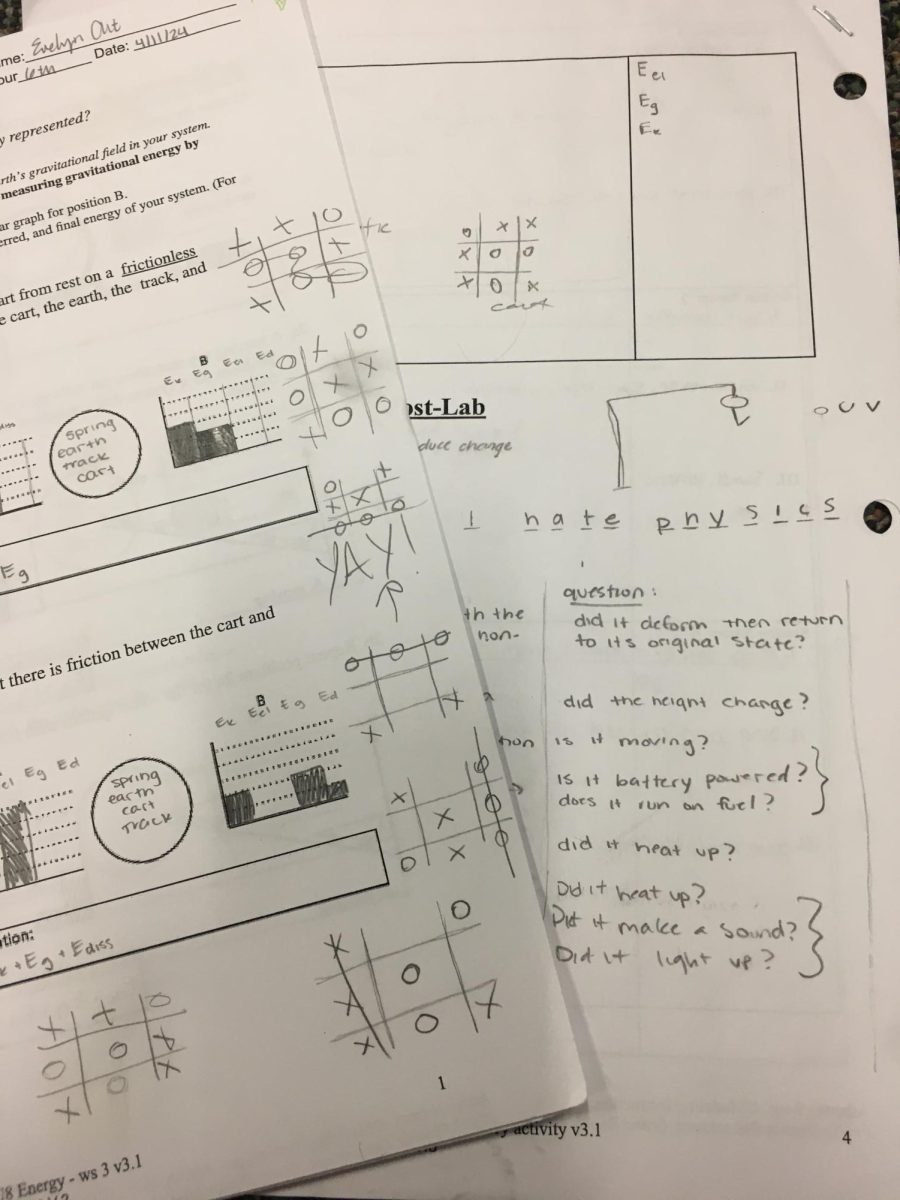Graduation requirements cause ambivalence among staff and students
Picture taken from Powerschool’s page on graduation requirement progress
Senior Lindsay Larson spent a substantial amount of time attempting to perfect her senior-year schedule. With only twelve available slots to fill throughout the entire school year, finding the ideal schedule was quite arduous.
FHC provides various class options for every student, and it can make it difficult to pick the best classes. However, there is still one major hindrance for many students: graduation requirements.
Graduation requirements are the primary obstacle stopping students from taking the classes they are the most passionate about. Lindsay, like many students, believes graduation requirements are “very restrictive.”
They force students into taking classes they wouldn’t necessarily choose to take nor put an effort into.
“I remember back to Biology freshman year; I didn’t really care about it,” Lindsay said. “We were just fulfilling a graduation requirement, but I spent the first few weeks just kind of acting like, whatever, it doesn’t matter. I had to really try hard to pretend to be interested in [Biology], but it was just exhausting spending a whole year pretending to be interested in it.”
Lindsay has no intention of pursuing anything remotely related to Biology, but she continued to find herself sitting through the draining class period each day her freshman year. Graduation requirements caused Lindsay to not only find little enjoyment in Biology but also “create a disconnect in classes.”
Considering the core-class requirements—four Math credits, four English credits, three History credits, and three Science credits—students do not have very much room in their schedules for the more-exhilarating elective courses.
Though graduation requirements become much more lenient during a student’s junior or senior year, it impedes on the first two years of high school, nonetheless.
“[My] freshman and sophomore year, I didn’t really take any classes that I was super interested in because I had Orchestra, Spanish, and my four core classes,” Lindsay said. “There was just no room.”
Alongside the four core classes required for all students to take their freshman and sophomore year, the state of Michigan requires two credits of a world language, one VPAA (Visual and Applied Arts), half a credit of physical education, and half a credit of health. A myriad of students choose to take those classes during their first two years of high school in order to get them out of the way, but that leaves no room for other classes.
Students lose the opportunity to take classes that they will want to pay attention to the moment their schedules fill up with required classes.
“Being able to choose classes I was interested in made me more engaged,” Lindsay said, “and it makes me more excited to come to school and learn.”
Without the classes of their choice, students lose a considerable amount of motivation in certain classes they are forced into. In fact, it is becoming so obvious that even teachers such as English teacher Lisa Penninga have noticed.
“Sometimes you can definitely see students that will meet the requirements at a bare minimum,” Penninga said. “I think that if all students were in the class because they wanted to be in it, it would probably be a more engaging collaborative group of students.”
The lack of motivation in students, though it is troubling at times, is understandable. It isn’t ideal, but graduation requirements do have their advantages amongst students.
Apart from diversifying students’ knowledge in all types of subjects, graduation requirements give students the chance to explore potential careers through their classes. If it weren’t for graduation requirements, students may never learn about topics that could possibly interest them.
“I definitely think that students come into English knowing it’s required with a different attitude,” Penninga said. “But I also think that there are students that don’t think they’re going to like English, and then they end up really liking [my] class.”
Graduation requirements force students into taking classes they wouldn’t necessarily choose to take nor put an effort into.
The graduation requirements supply students with a guideline for their years in high school. FHC provides many class options for students to fulfill their graduation requirements, and it partially allows students to express their interests.
After completing some of their requirements, students gain access to the freedom of choosing their own schedules during their final years of high school.
Counselor Sarah Van’t Hof has watched many students gain that freedom, and she sees the benefits it can have.
“When students have a choice and are able to say, ‘this is where I have a passion, and this is where I have a vision of what I’d like to do in a career,’ that’s fantastic,” Van’t Hof said. “Students are able to access that freedom quickly and kind of create their own curriculum.”
The state of Michigan has created the graduation requirements for students for good reason, but even the administration understands that some classes aren’t entirely appropriate for some students to be taking based on their interests.
“I think relevancy is a big thing,” Van’t Hof said. “What’s relevant to one student may not be relevant to another student.”
Graduation requirements also give students a sense of what college will look like. Even though students have the chance to choose their majors, they are still required to take specific classes.
These requirements have their advantages, but students continue to yearn for the freedom of choosing their own classes.
“I think choosing our own classes [is] kind of like this prize, [and] it’s getting moved farther and farther [from our reach],” Lindsay said. “You want to take all of these engaging courses, but you can’t necessarily do that because you have graduation requirements. They’re more of a disappointment, in my opinion, because we have all these options for classes, and that’s great, but you’re never going to get to do all the ones you want because you were stuck with the required classes. I know the situation is tough, but I think [our school] handles the options fairly well.”

Sophie is a senior entering her second year on The Central Trend staff. She spends the majority of her free time involved in theatre productions. She enjoys...



























































































